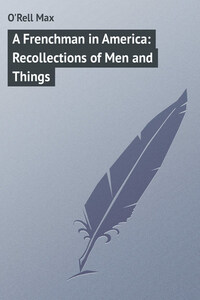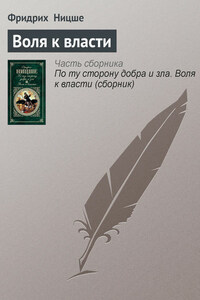A Word to Donald. – The Scotch Anecdote and its Character. – The Scotch painted by Themselves.
Ah! my dear Donald, what good stories you told me in the few months that I had the pleasure of passing with you! How you stuffed and saturated me with them!
And the English pretend that nobody laughs in Scotland!
Don't they though! and with the right sort of laughter, too: a laugh that is frank, and full of finesse and good-humour.
You will be astonished, perhaps, that a three or four months' sojourn in Scotland should permit me to write a little volume on your dear country, and you will, may be, accuse me of having visited you with the idea of seeking two hundred pages for the printer.
You would be very wrong in your impression, if you thought so.
To tell the truth, I did not take a single note in Scotland; but, on my return home, all those delicious anecdotes came back to my memory, and I could not resist the temptation of telling a few of them to my compatriots.
After all, Scotland is almost a closed letter to the French; and I thought I might make myself useful and agreeable in offering French readers a picture of the manners and character of the Caledonians.
If, in order to be a success, a book of travels must be full of the strange and the horrible, it is all up with this one. But such is not the case; and he who advanced this opinion calumniated the public.
I have as much right as anyone to contradict such an assertion; for the public has been pleased to give the kindest reception to my books on England, and I certainly never had any other aim or ambition than that of telling the truth according to Horace's principle, Ridentem dicere verum quid vetat?
Scotland is perhaps the only country whose anecdotes alone would suffice to give an exact idea of her inhabitants.
Irish anecdotes are exceedingly droll; but they only tend to show the thoughtless side of the Irish character. They are very amusing bulls; but while they divert, they do not instruct.
In Scotland, on the contrary, you find in the anecdotes a picture of the Scotch manners and character, as complete as it is faithful.
The Scot has kept the characteristics of his ancestors; but his manners have been toned down, and the language he speaks is growing more and more English: he is a changed man, and, in good society, you might be puzzled to tell him from an Englishman.
This is not a compliment, for he has no desire to pass for other than Scotch.
Among those characteristics, there are two which he has preserved intact to the present day: finesse and matter-of-fact good-humour. You will find these two traits in every grade of Scotch life – in tradesman, mechanic, and peasant.
This is why, setting aside the upper classes, the Scotch differ essentially from the English.
It is because of that good-humour that the Scot is more communicative than the Englishman. He knows his failings, and does not mind talking about them; in fact, he will give you anecdotes to illustrate them, and this because they are national, and he loves to dwell on anything which reminds him that Scotland is a nation.
I might have entitled this volume, "The Scotch painted by themselves," for I do but write down what I saw and heard. I owe the scenes of life I describe to the Scotch who enacted them before me, and the anecdotes to those who were kind enough to tell them to me.
Donald, a British subject, but no Englishman. – Opinion of the greatest English Wit on the Scotch, and the worth of that Opinion. – The Wit of Donald and the Wit of the Cockney. – Intelligence and Intellectuality. – Donald's Exterior. – Donald's Interior. – Help yourself and Heaven will help you. – An Irish and a Scotch Servant facing a Difficulty. – How a small Scotchman may make himself useful in the Hour of Danger. – Characteristics. – Donald on Train Journeys. – One Way of avoiding Tolls.
In the eyes of the French, the Scot is a British subject – in other words, an Englishman – dressed in a Tam-o'-Shanter, a plaid, and kilt of red and green tartan, and playing the bagpipes; for the rest, speaking English, eating roast beef, and swearing by the Bible.
For that matter, many English people are pleased to entertain the same illusions on the subject of the dwellers in the north of Great Britain.
Yet, never were two nations1 so near on the map, and so far removed in their ways and character.
The Scots English! Well, just advance that opinion in the presence of one, and you will see how it will be received.
The Scotchman is a British subject; but if you take him for an Englishman, he draws himself up, and says:
"No, Sir; I am not English. I am a Scotchman."
He is Scotch, and he intends to remain Scotch. He is proud of his nationality, and I quite understand it.
Of all the inhabitants of the more-or-less-United Kingdom, Friend Donald is the most keen, sturdy, matter-of-fact, persevering, industrious, and witty.
The most witty! Now I have said something.
Yes, the most witty, with all due respect to the shade of Sydney Smith.
So little do the English know the Scotch, that when I spoke to them of my intention to lecture in Scotland, they laughed at me.











